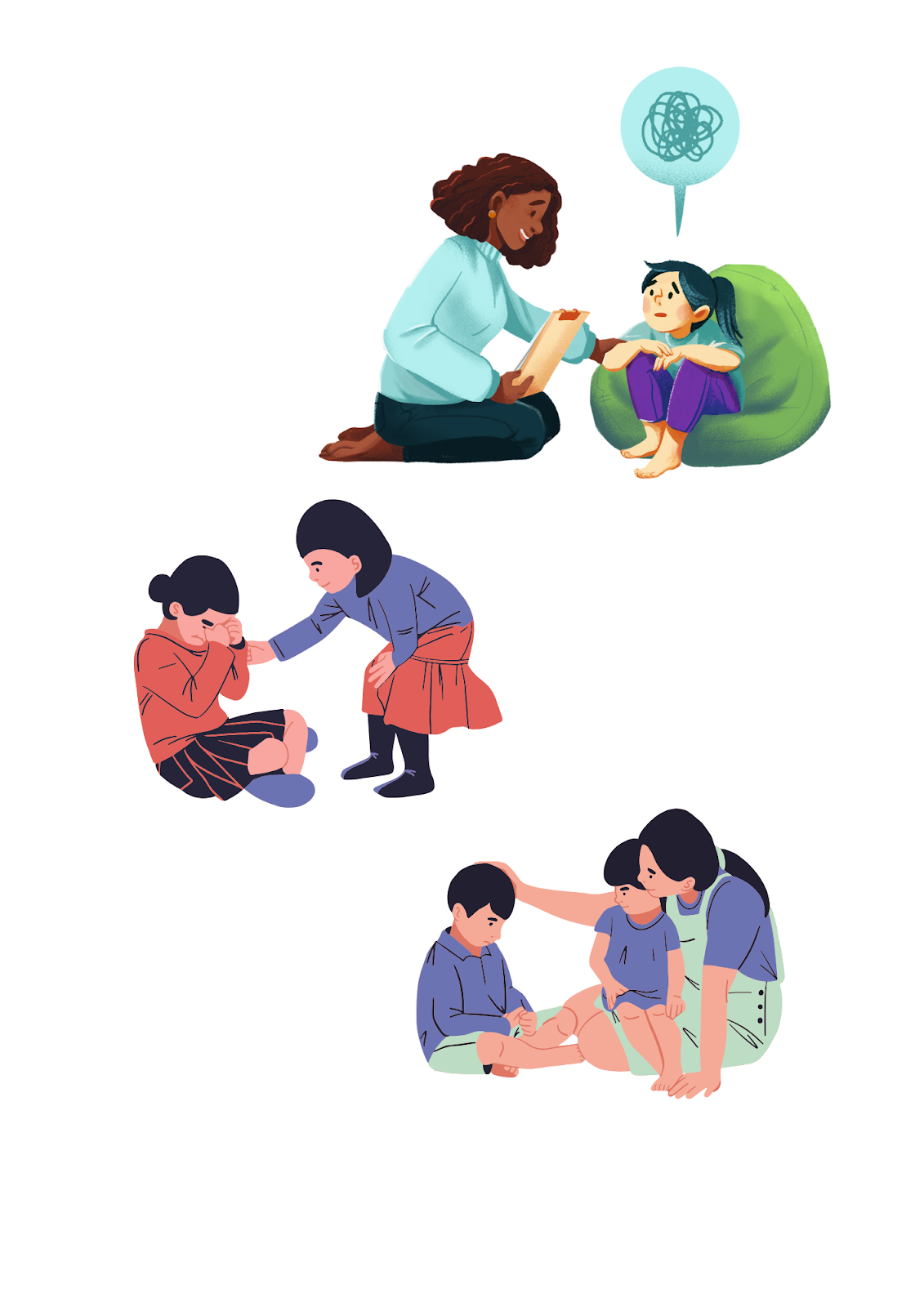ONE FOR ALL AND ALL FOR ONE: MENTAL HEALTH WITHIN THE FAMILY
“…Why
don’t you come for my school events like my friends dad and mum?...”
“…My
parents can’t afford the same things as what my friends have...”
“…I
don’t know if I’m being a good parent, I made mistake, my child isn’t normal…”
“…We
aren’t good together, let’s keep things together for the children…”
“…It’s
my job, I don’t have all the time for our marriage, I’m the man, I have to earn
money for us…”
“…Why
did he leave? I’m just one lady, how will I cope with these children…?”
Do
some of these phrases sound familiar to you or some of the family stories you have
read?
If
they have, we see you and we acknowledge that things within families do not
always go the way we want.
At
times, we want to be the perfect husband, father, mother, wife, child or even
excellent family member that everyone looks up to. However, they are enough
challenges thrown our way that often conflict our thoughts, emotions and
behaviours.
Sometimes
we easily feel that it is hard to keep up when living with others and
ultimately wish to get away from everything or wonder why our homes are not
like the other families, we seem to find that are perfect and don’t have the
struggles you may possibly have.
However,
it is important to recognize that matters that challenge our mental health do
not choose people and are not biased, therefore it is not accurate to feel that
we are less valuable as family due to certain challenges.
In
this mix of matters it is important to learn some of the warning signs that
could help in finding out potential mental illness or mental health issues.
Signs
and symptoms of potential mental health issues in the family
Every
mental illness or mental health issues can have their own specific signs and
symptoms; however, they are general signs and symptoms that can appear and can
be important to be aware of.
Adults,
Young Adults and Adolescents (13 – 60+yrs)
-
Confused thinking
-
Prolonged depression (sadness or
irritability)
-
Feelings of extreme highs or lows
-
Excessive fears, worries and anxiety
-
Social withdrawal
-
Dramatic changes in sleeping or eating
patterns/habits
-
Strong feelings of anger
-
Strange thoughts or hearing and seeing
things that are not there (delusions and hallucinations)
-
Growing inability to keep up with daily
problems and activities
-
Suicidal thoughts
-
Numerous unexplained physical ailments
-
Substance use
Older
children and pre-adolescents (10 – 12yrs)
-
Inability to cope with daily activities
-
Changes in sleeping and eating patterns
-
Defiance of authority, truancy, theft
and/or vandalism
-
Intense fear
-
Frequent outbursts of anger
-
Prolonged negativity or negative mood,
which is often accompanied by poor appetite or thoughts of death
-
Changes in ability to manage
responsibilities, be it at home or school
-
Complaints of numerous physical ailments
Younger
children (3 – 9yrs)
-
Persistent nightmares
-
Hyperactivity
-
Persistent disobedience or aggression
-
Frequent temper and tantrums
-
Excessive worry or anxiety (i.e refusing
to go to school or bed)
-
Changes in sleeping or eating habits
-
Poor grades despite strong efforts
-
Changes in school performance
Whenever
some of the signs and symptoms appear, in one individual or more, they can
bring about a strong effect towards the whole functioning of the family. It can
cause a lot of complex thoughts and emotions that disturb our day to day lives.
Despite the tough conditions that may appear, some of the ways to handle some
of these things include:
Practicing
acceptance and beginning the conversation: When the
appearance of signs and symptoms of mental illness or mental health issues
happen to a loved one, it can be a distressing time for everyone in family.
It
may cause us to deny the situation because of what we may look like to other
people, worry or have guilt that we have caused the problem and many others.
Despite
the stress, it is important to be able to practice acceptance and engage in a
conversation. During the conversation, it is important to remain,
non-judgmental and listen attentively without overemphasizing your side of
things
This
not only helps in easing and releasing complex thoughts and emotions but also
assists and getting down to problem objectively and chart a course for things
to get better.
It
helps bring about a clearer picture of the problem and erase confusion.
Educating
yourself about the mental illness or mental health issues:
In the midst of complex behaviour that a person with a mental health issue or
mental illness may exhibit, it may cause confusion and frustration, initially.
In this situation, in order to be able to understand and communicate better
with your loved one, being able to be educated and informed about the mental
illness or mental health condition that they have, can be able to help navigate
various scenarios that their signs and symptoms may manifest.
Seeking
support for yourself and other family members: In the midst
of confusion, frustration and stigma in which the situation that a family
member, having a mental illness or mental health issue creates, we may feel
exhausted and fatigued in trying to keep up.
However,
it is important that we are able to seek support services such as counselling
and therapy, which can help us manage our complex emotions and thoughts, and be
rejuvenated enough to be keep going and manage our daily lives.
Other
forms of help and support can be mental health communities that are facing
similar problems with a family member with a mental health issue, and can be
people who can offer assistance through the journey and reminded that you are
not alone.
Conclusion
Whenever
we are encountered with mental health issues within the family, it can cause a
huge amount of stress and turmoil within the family.
However,
it is important to remember that mental health issues, do not make us any less
of a family, and it does not mean we are unworthy of being able to love and
appreciate each other within the family and by others in society.
Scenarios
of mental health issues in families can be helped by being able to engage in
conversations and practicing acceptance of a family members mental health issue
as well as reaching out to mental health services and professionals.
Finally,
it is important to know that we are not alone and they are other families who
may be experiencing the similar situations with a family member and may offer a
source of help and sense of community to navigate the path.
References
https://www.mhanational.org/recognizing-warning-signs
https://www.psychiatry.org/patients-families/helping-a-loved-one-cope-with-mental-illness




Comments
Post a Comment